
Aug 15
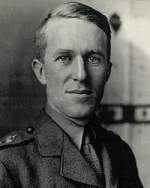
1888 Birth: T. E. [Thomas Edward] Lawrence (Lawrence of Arabia), English soldier and writer, actor, in Wales. His adventures as a soldier in the Middle East during World War I, recorded in The Seven Pillars of Wisdom, will become legendary.
He was a very able pupil and could read at the age of four. He was also reading Latin at the age of six. Lawrence won a scholarship to Oxford University and developed a passion for reading - especially books on military history. At Oxford University, Lawrence read History and gained a first class honours pass. While a student at Oxford, he travelled to the Levant where he visited Crusader castles. After gaining his degree , he joined an expedition by D G Hogarth to excavate Carchemish. He found that he had a natural affinity with the Arab people who he met. He learned their language and customs and spent time reading about their history.
When war was declared in August 1914, Lawrence tried to join the army but was turned down because he was too small. The minimum height set by the army was five feet five inches. However, he persevered and after several months he was given a commission. Lawrence joined the intelligence branch of the general staff. His knowledge of Arabic led to a posting to Egypt where he served in the 'Arab Bureau' at GHQ. Lawrence had an unorthodox approach to his commission. Ignoring the protocol in the British Army for smartness of uniform, he was seen as a very able but scruffy junior officer.
1891 Birth: Fritz Wiedemann: Hitler's superior battalion executive officer during World War I. Later joined the Nazis and after 1933 became Hitler's military aide and foreign policy advisor. Alienated in 1939, he became consul-general in San Francisco, later in Tientsin. After the war, he became a farmer in Southern Germany.
1899 Henry Ford leaves Edison to start automobile company: On this day in 1899, in Detroit, Michigan, Henry Ford resigns his position as chief engineer at the Edison Illuminating Company's main plant in order to concentrate on automobile production. [For further details, Click here.]
1904 The Austrian DAP is officially founded at Trautenau (Trutnou):
The Austrian group known as the German Workers' Party (DAP) was first organized in the northern Bohemian city of Aussig (Usti nad Labein) on November 15, 1902, and officially founded at Trautenau (Trutnou) on August 15, 1904. Two of its first leaders were from Hitler's hometown of Linz. In a speech in 1920, Hitler declared, "[The] same movement that started in Austria in 1904, has just now begun to gain a footing in Germany." In 1911 DAP headquarters were located in the same Vienna neighborhood as Hitler's apartment. In August, 1918, under the leadership of its chairman, Dr. Walter Riehl, the DAP changed its name to the German National Socialist Workers Party (DNSAP) at a meeting in Vienna. In September 1919 Riehl sent copies of the Austrian Nazi program to Anton Drexler, chairman of the new German DAP and suggested that Drexler change the name of his German group to coincide with that of Riehl's Austrian Nazi party (DNSAP). No one is sure when Riehl and Hitler became acquainted, but between 1920 and 1923, Hitler made a number of speeches in Austria--at Innsbruck, Hallein, Saint Polten, and Vienna among others. Some of these meetings were organized by Riehl's group, and Hitler is known to have written several articles for a newspaper published by the Austrian DAP in Vienna. Hitler and Riehl are said to have split over strategy and tactics in 1923. (THP)
1914 Various:
Panama Canal open to traffic: The American-built waterway across the Isthmus of Panama, connecting the Atlantic and Pacific oceans, is inaugurated with the passage of the U.S. vessel Ancon, a cargo and passenger ship. [For further details, Click here.]
World War I: Various:
Neutrality: US Secretary of State William Jennings Bryan writes to JP Morgan telling him that loans to belligerents goes against the US policy of neutrality. (See October 15) (THP)
Serbian Marshal Putnik is victorious over the Austrians at Cer Mountain:
Putnik ordered Stepa to pursuit enemy force frontally and not to conduct any sort of flanking attack, which would, in itself, cause far larger casualties upon retreating enemy. Third Army's loss of contact with enemy on the third day of the battle also helped Austro-Hungarian Fifth Army to withdraw in a more orderly fashion. Considering this information, it is obvious that the invading force could have suffered a far costlier defeat and shows Putnik as a superb organiser (his mobilisation plans for both Balkans wars and World War I were excellent, considering the low quality of roads in Serbia and lack of a significant railroad network), yet overcautious in the conduct of battles. During August 1914 a battle was waged in the area of Mt. Cer, in which around 200,000 Austro-Hungarians fought against 180,000 Serbs. The main battle at Cer.
Japan gives ultimatum to Germany:
On this day in 1914, the government of Japan sends an ultimatum to Germany, demanding the removal of all German ships from Japanese and Chinese waters and the surrender of control of Tsingtao—the location of Germany’s largest overseas naval bases, located on China’s Shantung Peninsula—to Japan by noon on August 23.
The previous August 6, the day after Britain entered World War I against Germany, the British foreign secretary, Sir Edward Grey, had requested limited naval assistance from the Japanese navy in hunting down armed German merchant ships. Japan gladly agreed, seeing the war as a great opportunity to pursue its own interests in the Far East. As one Japanese statesman, Inoue Karou, put it, the war was "divine aid . . . for the development of the destiny of Japan." Thus the Japanese hurried to honor their 1902 alliance agreement with Britain, serving Germany with its ultimatum on August 15. [For further details, Click here.]

1915 World War I: List Regiment: Gefreiter Adolf Hitler's 16 Reserve Infantry Regiment continue to occupy a position at Fromelles—pictured above in a drawing by Hitler—on a level field with water channels, willow trees and willow stalks; in the distance towards the enemy lines lie an insignificant wood with barbed wire entanglements. Under the direction of their defense-minded commander, Lieutenant General Gustav Scanzoni von Lichtenfels, the regiment works ceaselessly day and night to further fortify their position at Fromelles while fighting off repeated assaults by the enemy. [For further details, Click here.]
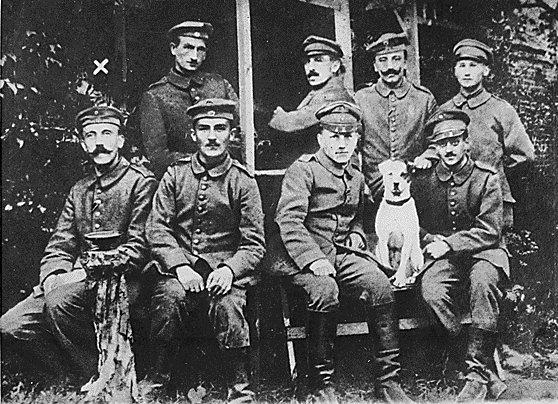
1916 World War I: List Regiment: Gefreiter Adolf Hitler endures trench warfare in Flanders (Artois) with 3 Company, 16 Reserve Infantry Regiment. [For further details, Click here.]
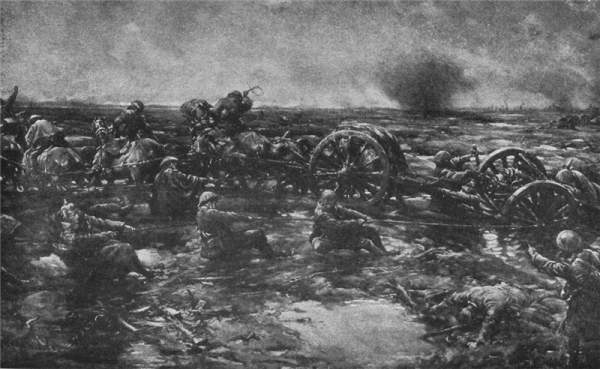
1917 World War I: Various:
List Regiment (July 22-September 8): Dispatch Runner Gefreiter Adolf Hitler serves at the front with 3 Company, 16 Bavarian Reserve Infantry Regiment during Phase 2 operations in Flanders. Most of their time in the trenches gas masks are worn, while English bombers attack, and tanks—a new terror witnessed for the very first time by most—attempt to advance over a long front through seas of mud. [For further details, Click here.]
Russian Revolution: The deposed Russian Czar Nicholas II and his family are moved from their residence at Tsarskoe Selo to further imprisonment in Siberia.
1918 Various:
World War I: List Regiment: Gefreiter Adolf Hitler's 16th RIR is involved in a skirmish near Cambrai, after which it is sent off in the general direction of Bapaume. [For further details, Click here.]
Russian Revolution: Diplomatic ties between the US and Russia are severed.
1920 In the battle of Warsaw, Polish Marshall Jozef Pilsudski crushes Soviet troops, blocking their march on western Europe.
1927 In his paper Der Angriff Goebbels publishes an attack on Bernhard Weiss, the Vice President of the Berlin police.
1930 Hoover looks to combat drought and economic depression:
On this day in 1930, President Herbert Hoover gives a press conference in which he offers plans for relief of individuals and businesses affected by a series of devastating droughts. The droughts, combined with a major stock market crash in October 1929, resulted in dire economic conditions in the country that lasted throughout the early to mid-1930s, an era known as the "Great Depression."
In 1930, the drought conditions had caused bankruptcies among small farmers who were then forced off their lands in search of work. A domino effect resulted in layoffs of workers in farm-related industries and agricultural banking. These unemployed agricultural workers flooded a labor market already suffering from job losses due to the stock market crash of 1929. In addition, water levels in some places shrunk to the point where public health was threatened by diseases caused by stagnant water.
Although critics later blamed Hoover for not doing enough to fight the Great Depression, his press conference of August 15 indicates that he at least attempted to put forward some emergency measures to stave off the economic collapse of the agricultural industry. In his statement, Hoover called for a mass mobilization of aid workers in response to the drought; asked state governors to organize committees to draft suggestions on how to aid the unemployed; and tasked the Red Cross with getting immediate aid to impoverished families. He asked the War Department to provide artillery range land to Montana cattle and sheep farmers for grazing. He also proposed a plan that Franklin Roosevelt would later expand upon: increasing federal money to drought-stricken areas to begin road-building programs for unemployed workers.
Hoover's piecemeal, primarily state-led relief plan, however, was not enough. As economic conditions worsened over the next two years, growing numbers of Americans plunged into poverty and shanty-towns of unemployed men sprang up in city parks; they were dubbed "Hoovervilles." Hoover and his wife Lou were criticized for maintaining a lavish lifestyle in the White House; this perceived lack of concern on the part of the president for his fellow citizens, combined with his reluctance to implement government spending relief programs, resulted in his ouster in 1932. Franklin Delano Roosevelt was swept into office that year on a platform of increased government-spending programs that he called the "New Deal." These programs included the establishment of massive infrastructure-construction projects, Social Security and the Civilian Conservation Corps.
Despite his reputation for insensitivity, Hoover's political career, both before and after his stint in the White House, included high-level positions in humanitarian-aid policy development. After World War II, President Truman tasked Hoover with finding ways to deal with a widespread European famine caused by the prolonged fighting. Hoover is best remembered, however, as the man who failed to save the nation from the Great Depression. (History.com)
1934 Nazi Germany: Various:
Hitler receives Hindenburg's political testament, but refuses to release it:
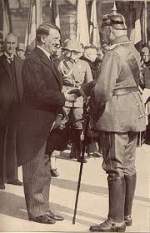
Hindenburg himself was said to be a monarchist who favored a restoration of the German monarchy. Though he hoped one of the Prussian princes would be appointed to succeed him as Head of State, he did not attempt to use his powers in favour of such a restoration, as he considered himself bound by the oath he had sworn on the Weimar Constitution.
It has been alleged that Hindenburg's will asked for Hitler to restore the monarchy. However, the truth of this story cannot be established as Oskar von Hindenburg destroyed the portions of his father's will relating to politics.
It has been argued that the political testament of Hindenburg's will that was made public in 1934, in which Hindenburg expresses the greatest thanks for Hitler was forged by Oskar von Hindenburg as a way of ingratiating himself with Hitler.
Hohnstein concentration camp is closed:
In this camp unusually grave mistreatments of prisoners have occurred at least since Summer 1933. The prisoners not only were beaten with whips without cause, similarly as in the Concentration Camp Bredow near Stettin till they lost consciousness, but they were also tortured in other manners, e.g. with the help of a dripping apparatus constructed exclusively for this purpose, under which prisoners had to stand until they were suffering from serious purulent wounds of the scalp. (Minister of Justice)
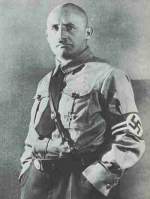
1935 Holocaust: Julius Streicher organizes an anti-Jewish rally at the Berlin Sportpalast.
1936 Various:
Palestine: Arab groups attack 38 Jewish settlements.
Japan: From an informal report—Fundamental Principles of National Policy—to the Japanese Emperor by the Hirota Cabinet:
Our basic policies for the continent include the elimination of the menace of the Soviet Union by assisting in the sound development of Manchukuo and strengthening the Japan-Manchukuo defense setup, preparing against Great Britain and the United States economic development by bringing about the close cooperation of Manchukuo, Japan and China. In carrying out these policies, care must be exercised to avoid aggravating friendly relations with other nations. [For the full text, Click here.]
1939 Various:
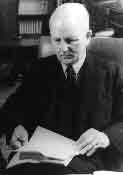
Countdown to World War II: German State Secretary Baron Ernst von Weizsaecker warns Sir Neville Henderson, the British Ambassador in Berlin, that the situation is extremely serious. Weizsaecker says any German diplomatic initiative is unthinkable in view of Beck's speech declaring that Poland was prepared to talk, only if Germany would first accept Poland's terms. In view of that, the ultimatum to the Danzig Senate, and the commentary note to Germany of August 10, no further talks are possible.
France: Churchill begins a tour of the Maginot Line.
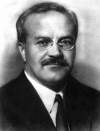
Molotov meets with von der Schulenberg in Moscow and expresses great interest in Hitler's proposals. Von der Schulenberg in turn is surprised and pleased at the Russian's moderate conditions.
Ambassador Von Dirksen's leave in Berlin is uninterrupted: Although he wishes to see Ribbentrop, the Foreign Minister will not see him. Von Dirksen discovers that Italian Ambassador in Berlin, Bernardo Attolico, believes Hitler is about to go to war with Poland, ignoring Britain's conciliatory attitude. Von Dirksen is convinced Attolico is wrong. (See August 3)
Countdown to War: Advance mobilization orders are sent to the German railways, and plans are made to move Army headquarters to Zossen, east of Berlin. Captain Karl Doenitz, head of the U-boat arm of the German Navy, is recalled unexpectedly early from leave. The navy reports that the pocket battleships Graf Spee and Deutschland and twenty-one submarines are ready to sail for their stations in the Atlantic. (THP)
The annual Nuremberg Party Rally—which Hitler proclaimed on April 1 as the "Party Rally of Peace"—and which is scheduled to begin the first week in September, is secretly canceled. (THP)
1940 World War II: War in the Air:By the end of the day, a total of 190 German planes have been lost in the last three days. The British have lost 115 in the same period. (THP)
1941 World War II: Various:
FDR and Churchill to Stalin:
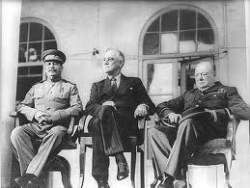
We have taken the opportunity afforded by the consideration of the report of Mr. Harry Hopkins on his return from Moscow to consult together as to how best our two countries can help your country in the splendid defense that you are putting up against the Nazi attack. The needs and demands of your and our armed services can only be determined in the light of the full knowledge of the many facts which we must take into consideration in the decisions that we take. In order that all of us may be in a position to arrive at speedy decisions as to the apportionment of our joint resources, we suggest that we prepare a meeting which should be held at Moscow, to which we would send high representatives who could discuss these matters directly with you. If this conference appeals to you, we want you to know that pending the decisions of that conference we shall continue to send supplies and materials as rapidly as possible. We realize fully how vitally important to the defeat of Hitlerism is the brave and steadfast resistance of the Soviet Union and we feel therefore that we must not in any circumstances fail to act quickly and immediately in this matter of planning the program for the future allocation of our joint resources.
Death: Corporal Josef Jakobs--by firing squad at the Tower of London for espionage, making him the last person to be executed at the Tower. [For further information, click here.]
Countdown to Infamy: From the Duty Book of Captain Shigeshi Uchida:
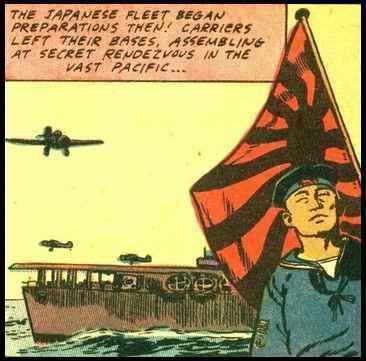
The Second Step of War Preparations was started. Early August the senior staff officer of the Combined Fleet and others came up to Tokyo to confer with us. On the 15th I discussed with the senior staff officer of the Second Fleet operations against the Philippines. On 14 and 15 of this month a war game for the Southern Operations was held in the Army General Staff. Yamamoto, Miyo, Kacho and I attended it. (Dillon)
[See: Countdown to Infamy: Timeline to Pearl Harbor.]1942 World War II: Various:
Operation Pedestal: The SS Ohio reaches the island of Malta barely afloat carrying vital fuel supplies for the island defenses.
Barbarossa: Start of the final drive of German forces under von Paulus from its Don bridgeheads toward Stalingrad.
By the end of July, the Germans had pushed the Soviets across the Don River. At this point, the Don and Volga Rivers were only 40 miles apart, and the Germans left their main supply depots west of the Don, which was to have important implications later in the course of the battle. The Germans began using the armies of their Italian, Hungarian, and Romanian allies to guard their left (northern) flank. The Italians are not often credited with bravery in the fighting, but they won several accolades in official German communiques. The German Sixth Army was only a few dozen kilometers from Stalingrad, and Fourth Panzer Army, now to their south, turned northwards to help take the city. To the south, Army Group A was pushing far into the Caucasus, but their advance slowed as supply lines grew overextended. The two German army groups were not positioned to support one another due to the great distances involved.
1943 World War II: Because of his special talent to use food scraps in both unusual and appetizing recipes, the US War Department awards Sgt. Edward Dzuba the Legion of Merit.
1944 World War II: Various:
Operation Dragoon: The American Seventh Army invades the South of France in "Operation Anvil." American infantry divisions from Italy make the attack aided by American paratroops as well as British and French units. Knifing through weak German defenses, the Seventh Army races up the Rhone Valley toward Germany. German troops in all of western France are now threatened with isolation by the Allied pincer.
The Warsaw Uprising: Stalin refuses to let US bombers land in the Soviet section after dropping supplies on Warsaw.
From a report from Office Group D of WVHA:
With reference to the above-mentioned telephone call, I am sending herewith a report on the actual number of prisoners for 1 August 1944 and of the new arrivals already announced, as well as the clothing report for 15 August 44. (1) The actual number on 1 August 44 consisted of: a) male prisoners, 379,167; b) female prisoners, 145,119. In addition, there are the following new arrivals already announced: 1) From the Hungary program (anti-Jewish action), 90,000; 2) from Litzmannstadt (police prison and ghetto), 60,000; 3) Poles from the Government General, 15,000; 4) convicts from the Eastern Territories, 10,000; 5) former Polish officers, 17,000; 6) from Warsaw (Poles), 400,000; 7) continued arrivals from France approximately 15,000 to 20,000. Most of the prisoners are already on the way and will be received into the concentration camps within the next few days.
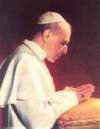
1945 Church & Reich: Pope Pius XII, in a letter to the Bavarian bishops, pays tribute to "those millions of Catholics, men and women of every class" who loyal to their bishops, had fought against the demonic powers that ruled Germany. (THP)
1945 World War II: Various:
The Japanese emperor speaks:
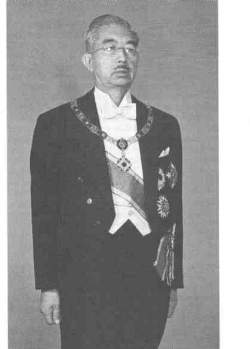
On this day in 1945, Emperor Hirohito broadcasts the news of Japan's surrender to the Japanese people.
Although Tokyo had already communicated to the Allies its acceptance of the surrender terms of the Potsdam Conference several days earlier, and a Japanese news service announcement had been made to that effect, the Japanese people were still waiting to hear an authoritative voice speak the unspeakable: that Japan had been defeated.
That voice was the emperor's. In Japan's Shinto religious tradition, the emperor was also divine; his voice was the voice of a god. And on August 15, that voice—heard over the radio airwaves for the very first time—confessed that Japan's enemy "has begun to employ a most cruel bomb, the power of which to do damage is indeed incalculable, taking the toll of many innocent lives." This was the reason given for Japan's surrender. Hirohito's oral memoirs, published and translated after the war, evidence the emperor's fear at the time that "the Japanese race will be destroyed if the war continues."
A sticking point in the Japanese surrender terms had been Hirohito's status as emperor. Tokyo wanted the emperor's status protected; the Allies wanted no preconditions. There was a compromise. The emperor retained his title; Gen. Douglas MacArthur believed his at least ceremonial presence would be a stabilizing influence in postwar Japan. But Hirohito was forced to disclaim his divine status. Japan lost more than a war—it lost a god. (History.com)
Korea is liberated from 35 years of colonial rule with Japan's defeat, only to acquire new masters as the peninsula is divided into Soviet controlled North Korea and the US controlled South.
Arguably, Korea's division at the 38th parallel as World War II ended was the most important event in the modern history of that nation. Had the United States and the Soviet Union not forcibly divided this East Asian country, there would have been no Korean War. A civil conflict was highly probable, however, after the surrender of Japan. This was because Japanese colonial rule had worsened mounting social, economic, and political inequities that Korea had endured during the 19th century.
US wartime rationing of gasoline and fuel oil ends:
Then there were the food manufacturers who took advantage of the wartime shortages to flaunt their patriotism to their profit. The familiar blue box of Kraft Macaroni and Cheese Dinner gained great popularity as a substitute for meat and dairy products. Two boxes required only one rationing coupon, which resulted in 80 million boxes sold in 1943. Food substitutions became evident with real butter being replaced with Oleo margarine. Cottage cheese took on a new significance as a substitute for meat, with sales exploding from 110 million pounds in 1930 to 500 million pounds in 1944.
After three years of rationing, World War II came to a welcome end. Rationing, however, did not end until 1946. Life resumed as normal and the consumption of meat, butter and sugar inevitably rose. While Americans still live with some of the results of World War II, rationing has not returned.
1946 Nuremberg Tribunal: Two Hundred and Fourth Day.
1947 India and Pakistan win independence:
The Indian Independence Bill, which carves the independent nations of India and Pakistan out of the former Mogul Empire, comes into force at the stroke of midnight. The long-awaited agreement ended 200 years of British rule and was hailed by Indian independence leader Mohandas Gandhi as the "noblest act of the British nation." However, religious strife between Hindus and Muslims, which had delayed Britain's granting of Indian independence after World War II, soon marred Gandhi's exhilaration. In the northern province of Punjab, which was sharply divided between Hindu-dominated India and Muslim-dominated Pakistan, hundreds of people were killed in the first few days after independence. [For further details, Click here.]
1961 Cold War: Berlin Wall built:
Two days after sealing off free passage between East and West Berlin with barbed wire, East German authorities begin building a wall--the Berlin Wall--to permanently close off access to the West. For the next 28 years, the heavily fortified Berlin Wall stood as the most tangible symbol of the Cold War--a literal "iron curtain" dividing Europe.
The end of World War II in 1945 saw Germany divided into four Allied occupation zones. Berlin, the German capital, was likewise divided into occupation sectors, even though it was located deep within the Soviet zone. The future of Germany and Berlin was a major sticking point in postwar treaty talks, and tensions grew when the United States, Britain, and France moved in 1948 to unite their occupation zones into a single autonomous entity--the Federal Republic of Germany (West Germany). In response, the USSR launched a land blockade of West Berlin in an effort to force the West to abandon the city. However, a massive airlift by Britain and the United States kept West Berlin supplied with food and fuel, and in May 1949 the Soviets ended the defeated blockade.
By 1961, Cold War tensions over Berlin were running high again. For East Germans dissatisfied with life under the communist system, West Berlin was a gateway to the democratic West. Between 1949 and 1961, some 2.5 million East Germans fled from East to West Germany, most via West Berlin. By August 1961, an average of 2,000 East Germans were crossing into the West every day. Many of the refugees were skilled laborers, professionals, and intellectuals, and their loss was having a devastating effect on the East German economy. To halt the exodus to the West, Soviet leader Nikita Khruschev recommended to East Germany that it close off access between East and West Berlin.
On the night of August 12-13, 1961, East German soldiers laid down more than 30 miles of barbed wire barrier through the heart of Berlin. East Berlin citizens were forbidden to pass into West Berlin, and the number of checkpoints in which Westerners could cross the border was drastically reduced. The West, taken by surprise, threatened a trade embargo against East Germany as a retaliatory measure. The Soviets responded that such an embargo be answered with a new land blockade of West Berlin. When it became evident that the West was not going to take any major action to protest the closing, East German authorities became emboldened, closing off more and more checkpoints between East and West Berlin. On August 15, they began replacing barbed wire with concrete. The wall, East German authorities declared, would protect their citizens from the pernicious influence of decadent capitalist culture.
The first concrete pilings went up on the Bernauer Strasse and at the Potsdamer Platz. Sullen East German workers, a few in tears, constructed the first segments of the Berlin Wall as East German troops stood guarding them with machine guns. With the border closing permanently, escape attempts by East Germans intensified on August 15. Conrad Schumann, a 19-year-old East German soldier, provided the subject for a famous image when he was photographed leaping over the barbed-wire barrier to freedom.
During the rest of 1961, the grim and unsightly Berlin Wall continued to grow in size and scope, eventually consisting of a series of concrete walls up to 15 feet high. These walls were topped with barbed wire and guarded with watchtowers, machine gun emplacements, and mines. By the 1980s, this system of walls and electrified fences extended 28 miles through Berlin and 75 miles around West Berlin, separating it from the rest of East Germany. The East Germans also erected an extensive barrier along most of the 850-mile border between East and West Germany.
In the West, the Berlin Wall was regarded as a major symbol of communist oppression. About 5,000 East Germans managed to escape across the Berlin Wall to the West, but the frequency of successful escapes dwindled as the wall was increasingly fortified. Thousands of East Germans were captured during attempted crossings and 191 were killed.
In 1989, East Germany's communist regime was overwhelmed by the democratization sweeping across Eastern Europe. On the evening of November 9, 1989, East Germany announced an easing of travel restrictions to the West, and thousands demanded passage though the Berlin Wall. Faced with growing demonstrations, East German border guards opened the borders. Jubilant Berliners climbed on top of the Berlin Wall, painted graffiti on it, and removed fragments as souvenirs. The next day, East German troops began dismantling the wall. In 1990, East and West Germany were formally reunited. (History.com)
Edited by Levi Bookin (Copy editor)
levi.bookin@gmail.com



Click to join 3rdReichStudies



Disclaimer: This site includes diverse and controversial materials--such as excerpts from the writings of racists and anti-Semites--so that its readers can learn the nature and extent of hate and anti-Semitic discourse. It is our sincere belief that only the informed citizen can prevail over the ignorance of Racialist "thought." Far from approving these writings, this site condemns racism in all of its forms and manifestations.
Fair Use Notice: This site may contain copyrighted material the use of which has not always been specifically authorized by the copyright owner. We are making such material available in our efforts to advance understanding of historical, political, human rights, economic, democracy, scientific, environmental, and social justice issues, etc. We believe this constitutes a "fair use" of any such copyrighted material as provided for in section 107 of the US Copyright Law. In accordance with Title 17 U.S.C. Section 107, the material on this site is distributed without profit to those who have expressed a prior interest in receiving the included information for research and educational purposes. If you wish to use copyrighted material from this site for purposes of your own that go beyond 'fair use', you must obtain permission from the copyright owner.
Please Note: The list-owner and moderators of 3rdReichStudies are not responsible for, and do not necessarily approve of, the random ads placed on our pages by our web server. They are, unfortunately, the price one pays for a 'free' website.